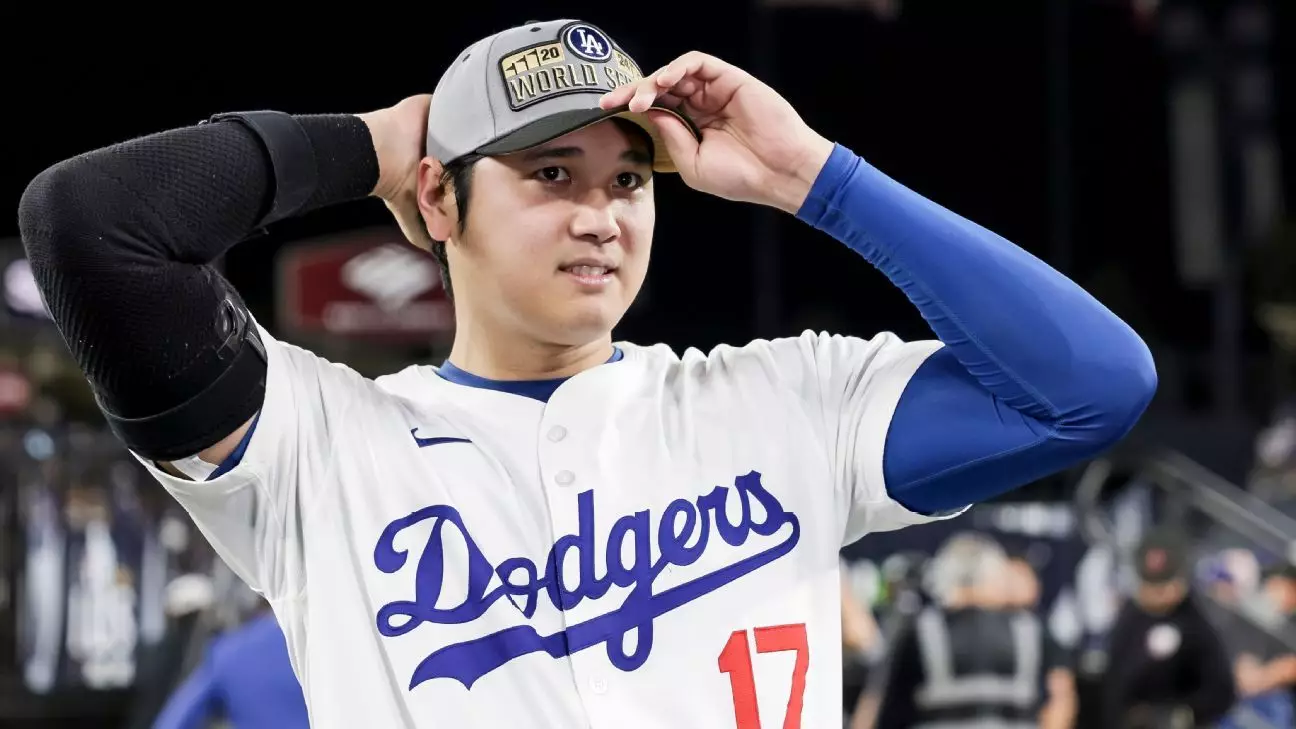In the realm of Major League Baseball (MLB), the Most Valuable Player (MVP) award stands as one of the most prestigious recognitions a player can achieve. This honor is awarded annually, with one athlete each from the American League (AL) and National League (NL) being distinguished for their exemplary performance during the regular season. Since its formal inception by the Baseball Writers’ Association of America (BBWAA) in 1931, the award has evolved significantly, and its rich history reflects the changing dynamics of the sport itself.
The journey began even earlier, in 1911, with the introduction of the Chalmers Award. It was designed to celebrate the “most important and useful player to the club and to the league.” However, this initial award was only short-lived, and by 1914 it became clear that a more structured approach to recognizing outstanding players was necessary. The League Award filled this gap from 1922 to 1928, with a focus on the overall contributions to a club rather than purely on statistical achievements. This evolution signified the increasing importance of individual contributions to team success within the ever-competitive landscape of baseball.
Fast-forwarding to 2024, the award continues to hold immense significance, showcased by the impressive achievements of players like Aaron Judge of the New York Yankees and Shohei Ohtani of the Los Angeles Dodgers, who both added their names to the illustrious list of MVP winners. Such players not only excel in their statistics but also embody the spirit of competition and skill that defines baseball.
As the list of winners unfolds from the past decade, it reveals a fascinating narrative of player performance and dominance. For instance, Ohtani’s consecutive wins in 2023 and 2024 highlight not only his pitching prowess but also his explosive batting ability, marking him as one of the most versatile players in MLB history. Similarly, Judge’s powerful swings and defensive capabilities showcase the critical dual-role many modern players now aspire to fulfill.
The increasing visibility of these modern-day wonders not only puts them in the spotlight but also ignites discussions on how the criteria for MVP selection may morph in the coming years. Do traditional statistics still hold weight, or is it time to incorporate advanced metrics that capture a player’s impact more holistically?
The selection process for the MVP award has attracted scrutiny and debate. Voters from the BBWAA ultimately decide, and their perspectives on what constitutes ‘valuable’ can produce divergent viewpoints. Historical comparisons often lead to conversations about the relative merits of players from different eras, with changing game dynamics and advancements in training technologies shaping contemporary skill sets.
In the earlier decades of baseball, performances were often measured by simple statistics—batting average, home runs, and runs batted in (RBIs). However, the landscape today is vastly different. The emphasis now includes on-base percentage, slugging percentages, and Wins Above Replacement (WAR), to name just a few of the advanced metrics redefining player evaluation. This transformation begs the question: how will future generations of players be judged?
The consistency of certain players over the years also adds another layer to the MVP discourse. The likes of Barry Bonds, a frequent winner before controversies overshadowed his achievements, illustrate the complexities and nuances inherent in evaluating value. Moreover, with legends like Mike Trout repeatedly featuring among the nominees, it’s crucial to contextualize these achievements within the time they occurred, along with the surrounding competition.
Beyond player achievements, the MVP award has significant implications for franchises and fan experiences. High-profile MVP winners often catalyze team marketing strategies and inspire the next generation of fans and players alike. Their stories become intertwined with the history of the game, creating a narrative that transcends the field.
As the excitement builds towards the announcement of the MVP each year, fans engage in debates over who truly deserves the accolade. Social media platforms foster lively discussions, and none is more electrifying than at the season’s conclusion when passionate fans advocate for their favorite players. Ultimately, this award resonates far beyond statistics; it taps into the emotional fabric of baseball, continually enriching its storied legacy.
The MVP award in MLB remains an evolving symbol of excellence. It chronicles the triumphs of individuals while reflecting broader trends in the sport, preserving its relevance in a rapidly changing landscape. As new stars emerge, the conversation about value, legacy, and the essence of the game continues—making every season an unpredictable yet thrilling chapter in the annals of baseball history.

